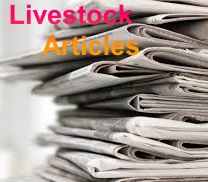Botswana To Comply With EU’s Deforestation Regulations
Botswana to comply with EU’s deforestation regulations
By Annelie Coleman | 16 September 2024 | 8:07 pm
Beef exports from Botswana to the EU will in future depend largely on adherence to the EU’s Deforestation Regulation that will become effective on 1 January 2025.
Beef product exporters will be required by the EU to demonstrate that their products do not contribute to deforestation practices and loss of biodiversity, according to the Botswana Gazette.
Botswana will be required in future to submit geolocations of the land where cattle are grazing and being raised. In its latest , the EU has revealed that partnering countries and businesses have to ensure that they comply with the regulation by the end of 2024.
The EU stated on its website its Deforestation Regulation was driven by the expansion of agricultural land for the production of cattle, wood, cocoa and many other products. Beef, as one of the commodities linked to deforestation, is a product of cattle farming that usually requires land expansion.
“The expansion often requires clearing of land whereby trees are cut and set on fire to make adequate space. Deforestation also leads to carbon emissions that go against the EU’s eco-friendly approach. An additional objective of the regulations is to reduce carbon emissions caused by EU consumption and production of the relevant commodities by at least 32 million tons a year,” the EU report read.
Botswana exports 9 000t of beef to the EU annually and currently enjoys preferential market access to the region. The country is allowed to export beef to the EU duty-free and quota-free.
Meanwhile, africa-press.net reported that Calle Schlettwein, Namibia’s minister of agriculture, had urged farmers in the country to pursue new, native markets for its charcoal and beef products in the light of announcement of the EU’s deforestation regulations.
These products will no longer have access to the European market unless they comply with the new rules, which Schlettwein described as stringent and prohibitive.

.jpg)






